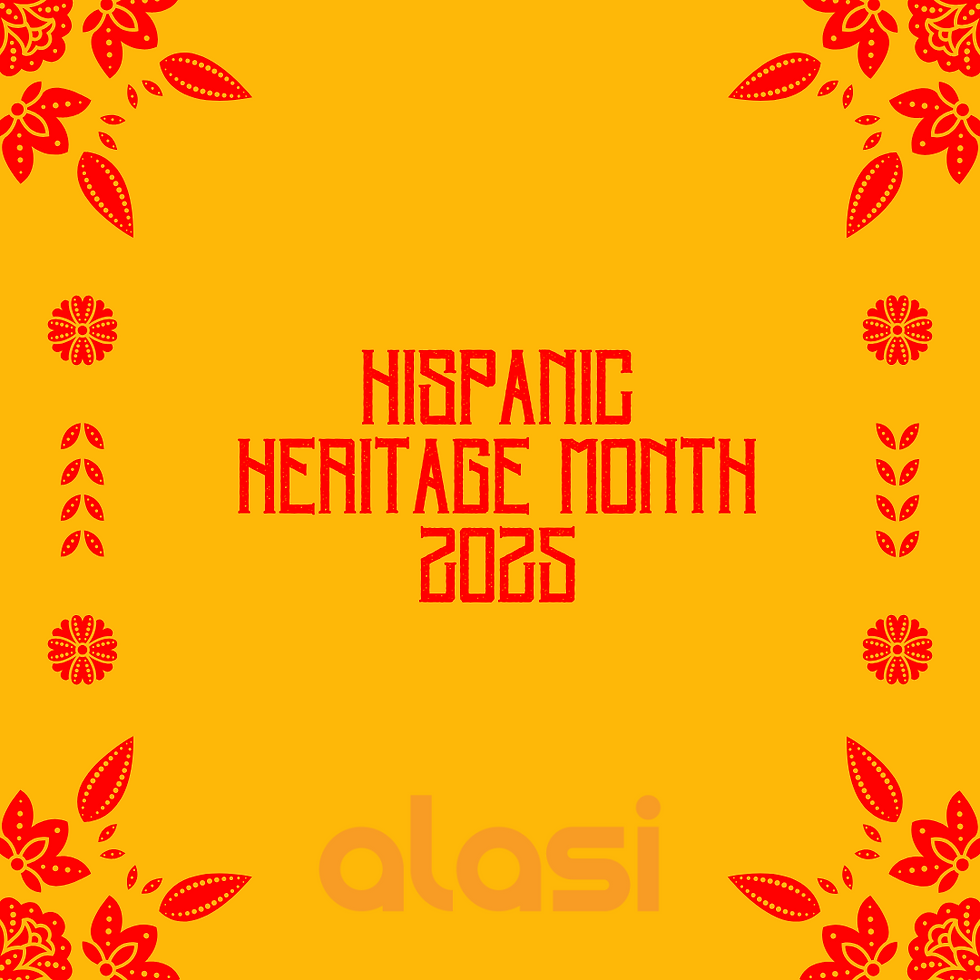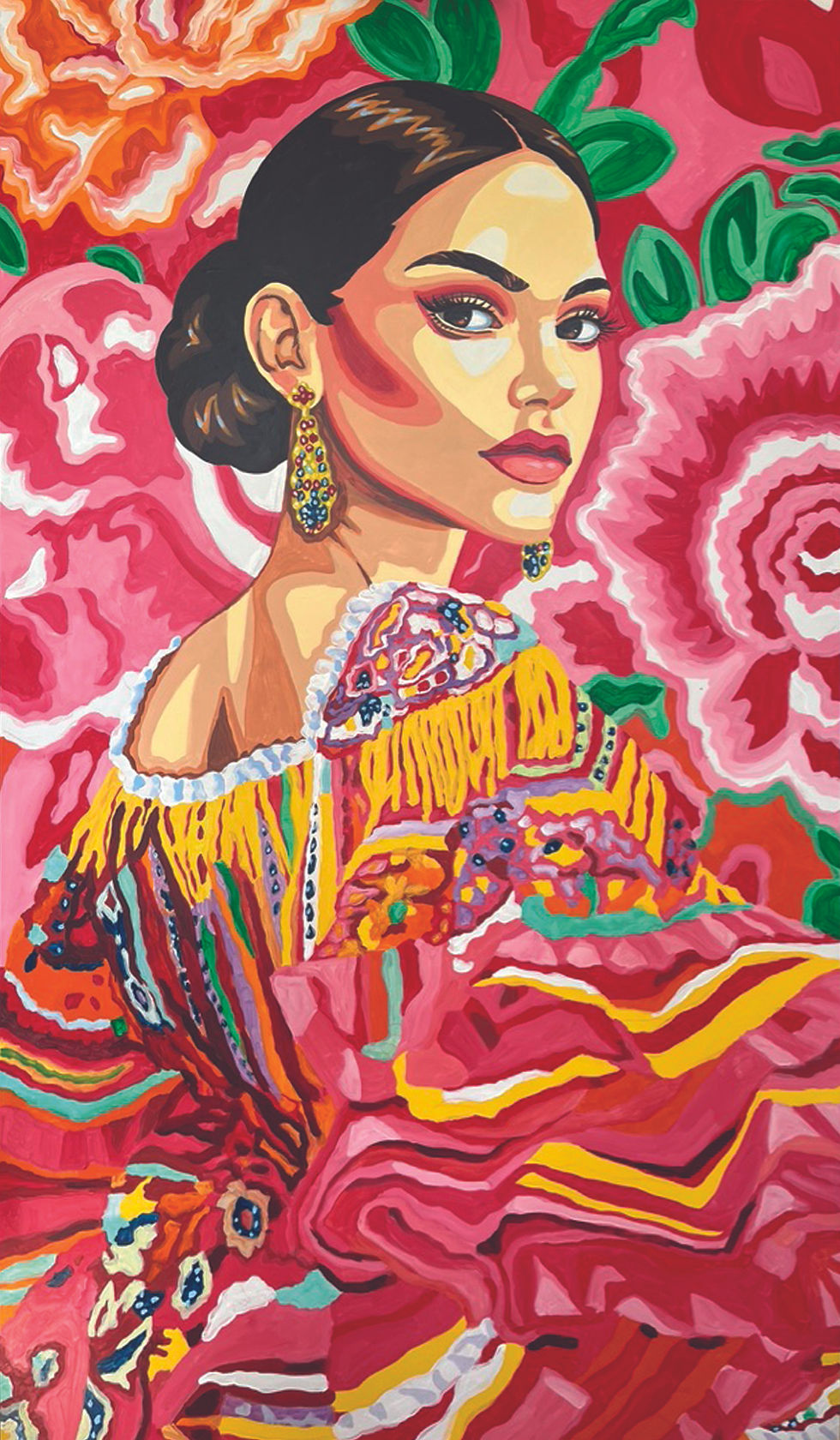¿Qué puedo hacer? | A Reflection on Allyship and Long Term Change
- Rossina Sandoval Monsivais

- Aug 18, 2025
- 3 min read
It was May 22, the day after ALASI released our public statement announcing the difficult decision to cancel the Latino Culture Fest. Calls and messages began pouring in—most expressing support, concern, and solidarity.
One question stood out, repeated by several of our community and allies:
"¿Qué puedo hacer?" — "What can I do?"
At ALASI, our mission centers on helping Latino families navigate complex systems—from healthcare to education to legal challenges. We also work directly with institutions to advocate for policies and practices that promote multiculturalism, equity, and inclusion.
But there is a third, vital piece of change that no organization can achieve alone:
what happens at home, especially with your youth.
Real, lasting change takes time, generations, in fact. Our vision isn’t just for five or ten years from now. It’s a 100-year vision.
If we’ve talked before, you’ve likely heard me say:
Cultural changes take time. It will take generations. But in Dubois County, we are already walking that time and space. The progress we dream of won’t come overnight, but it begins now with the foundations we lay today.
So, what can you do?
Talk to your children. Talk to your youth.
Use these moments, especially the hard ones, as opportunities to spark real conversations. Share the press release about the festival cancellation with them. Ask:
What do you understand from this?
How does this decision make you feel?
Why do you think this happened?
What can we do to ensure safety for all?
Take turns speaking. Connect the issue to things they’ve experienced, at school, on the field, in media. Share your own experiences. And when questions come up that you don’t know how to answer reach out, ask, and come back to them with real information.
These conversations aren’t just important, they are transformative. They help young people understand concepts like justice, equity, and empathy. They create space for healing, learning, and growth.
This is where racism loses its power, through intentional, honest, and compassionate education at home. ____________________________________________________________________ Era el 22 de mayo, un día después de que ALASI publicara nuestro comunicado anunciando la difícil decisión de cancelar el Latino Culture Fest. Empezaron a llegar llamadas y mensajes , la mayoría expresando apoyo, preocupación y solidaridad.
Hubo una pregunta repetida por varios de nuestra comunidad y aliados:
“¿Qué puedo hacer?” “What can I do?”
En ALASI, nuestra misión se centra en ayudar a las familias latinas a navegar sistemas complejos —desde la salud hasta la educación y los desafíos legales. También trabajamos directamente con las instituciones para abogar por políticas y prácticas que promuevan el multiculturalismo, la equidad y la inclusión.
Pero hay una tercera pieza vital del cambio que ninguna organización puede lograr sola:
lo que sucede en casa, especialmente con la juventud.
El cambio real y duradero toma tiempo, generaciones, de hecho. Nuestra visión no es solo para cinco o diez años; es una visión a 100 años.
Si hemos conversado antes, seguramente me habrás escuchado decir:
Los cambios culturales toman tiempo. Tomarán generaciones. Pero en el condado de Dubois ya estamos caminando ese tiempo y ese espacio. El progreso con el que soñamos no llegará de la noche a la mañana, pero comienza hoy con los cimientos que pongamos.
Entonces, ¿qué puedes hacer?
Habla con tus hijos. Habla con tu juventud.
Usa estos momentos, sobre todo los difíciles, como oportunidades para encender conversaciones reales. Comparte con ellos el comunicado sobre la cancelación del festival. Pregúntales:
¿Qué entiendes de esto?
¿Cómo te hace sentir esta decisión?
¿Por qué crees que pasó?
¿Qué podemos hacer para garantizar la seguridad de todos?
Tómense turnos para hablar. Conecta este tema con situaciones que ellos hayan vivido, en la escuela, en el deporte, en los medios. Comparte tus propias experiencias. Y cuando surjan preguntas que no sepas responder, busca la respuesta, pregunta, y regresa a ellos con información real.
Estas conversaciones no solo son importantes, son transformadoras. Ayudan a los jóvenes a comprender conceptos como justicia, equidad y empatía. Crean un espacio para sanar, aprender y crecer.
Aquí es donde el racismo pierde su poder: a través de una educación intencional, honesta y compasiva en el hogar.



